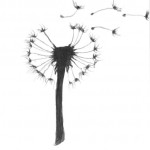Frank Jacob, City University of New York (Web); Stefan Karner, BIK Graz
Proposals by: 15.07.2016
War destroys everything. Even the lives of those, who survive the war are destroyed. Financial hardships, trauma, and the demand for reintegration by peaceful societies are burdens for those who return alive from the battlefield of the former war. However, the post-war societies have to struggle to provide sufficient possibilities for reintegration of veterans into the new peaceful life as well. In all periods of human history political entities and states have tried to find a way for such a reintegration without triggering the violent potential that is represented by former soldiers. Despite such attempts, modern nation states and societies still struggle with the task to find a solution for veteran reintegration in post-war environments. The editors of the planed volume want to analyze the historical aspects of veteran treatment and veteran reintegration — without chronological or geographical limitations — and therefore welcome proposals for chapters that deal with, but are not limited to the following topics: Continue reading

![via http://sexologies.hypotheses.org/presentation [Zum Vergrößern anklicken] 9780762433230_l](https://salon21.univie.ac.at/wp-content/uploads/9780762433230_l-150x150.jpg)
![Kriegsgefangenenpostkarte von Georg M., 8. Juni 1916 [Zum Vergrößern anklicken] 1916 06 08](https://salon21.univie.ac.at/wp-content/uploads/1916-06-081-150x150.jpg)

![Wiener Caricaturen, via http://iog.univie.ac.at/news-verwaltung/einzelansicht/article/einladung-zum-gastvortrag-9-juni-2016/?tx_ttnews[backPid]=96007&cHash=a0651e6deacf421d4cab8bbf5153cf44 [Zum Vergrößern anklicken] 3520d3a900](https://salon21.univie.ac.at/wp-content/uploads/3520d3a900-150x150.jpg)